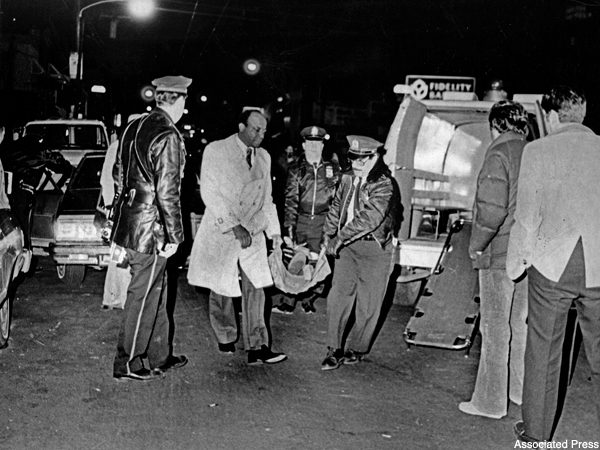35 Years Inside the Philly Mob With George Anastasia
Frankie the Fixer is trying to have it both ways. Which probably comes as no surprise to the people of south philadelphia who used to deal with Frankie the Fixer.
It’s last November, and the Fixer, a licensed plumber and legendary con man named Frank DiGiacomo, is on the witness stand, testifying for the prosecution in the racketeering trial of Mob boss Joseph “Uncle Joe” Ligambi and six co-defendants. The government is using DiGiacomo to back up allegations that Ligambi was the boss of the Philly Mob, and had engaged in gambling and loan-sharking. Frankie says as much, but with a smile. He’s careful to explain that Ligambi and the others, guys like co-defendants Joseph “Mousie” Massimino and Anthony Staino, are “great guys.” Fun to be around, he adds. He’s hung with them, eating, drinking and partying at bars and restaurants downtown. He loved it, he says. And the women? Madonne!
Frankie isn’t a great plumber. “The drains are still clogged,” Massimino quips during a break in the proceedings, referring to work DiGiacomo did for him at Lou’s Crab Bar, a neighborhood joint Mousie ran when he was on the streets. Whether DiGiacomo, 48, is a great witness is another question. That one, the jury will decide.
Sitting in the courtroom for this three-month-long trial, I find myself thinking about something else: the fact that it doesn’t matter whether Ligambi and the others are found guilty.
Because the glory days of the Philadelphia Cosa Nostra are over.
Defense attorneys don’t deny the existence of the Mafia. What they do argue is that the Ligambi organization wasn’t cut from the same cloth as the violent, blood-soaked crime families headed by Nicodemo “Little Nicky” Scarfo and John Stanfa.
I’d argue something else. And that is that the Philadelphia branch of the American Mafia—an institution that from the 1950s through the 1980s functioned as a shadow government, impacting politics, commerce, organized labor and the justice system—is today little more than a street gang. The days of Mob hits and omertà, of bribed judges and rigged multimillion-dollar construction contracts, of power and influence and “men of honor”—they’re history. The long-running soap opera that played out against the backdrop of Passyunk Avenue, 9th Street, the Produce Center and the Atlantic City Boardwalk has been canceled.
I’ve spent the past 30 years reporting on the Philly Mob. My career at the Inquirer was, in large part, defined by that.
As I sit listening to testimony and evidence—I now cover the proceedings for bigtrial.net, a website about major Philly trials funded by the Beasley law firm—it occurs to me that the Mob, like the newspaper business, has lost its way. The game has passed the Ligambi organization by. Today, the real players in the Philadelphia underworld are black, Asian, Russian. They carry big guns and use them. They have wads of cash and kilos of cocaine. So it really doesn’t matter what the jury decides in the Ligambi case.
For the Mob, it’s all over.



